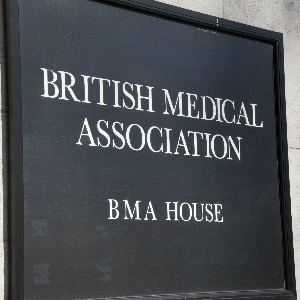Mass GP resignation from NHS ‘may take two years to complete’

Exclusive It could take up to two years to collect enough undated resignations for GPs in Northern Ireland to walk away from the NHS, the BMA has revealed.
Practices are continuing to slowly send in resignations due to the state of general practice in the country, Northern Ireland BMA GP Committee chair Dr Tom Black told Pulse.
But the uncertain political situation and the fact practices are taking time to carefully assess their position, means it may take a while for resignations to be returned, he said.
LMC leaders have previously warned that practices across the country are on the brink of collapse and may go over the cliff before enough resignations come in.
The GPC in Northern Ireland voted to start collecting resignations in January after 97% of GPs backed the move in a series of meetings held across the country.
Once 60% of practices have sent in resignations, the BMA has said it will launch plan B – details of which are still being ironed out – and GPs will leave the NHS, potentially charging around £45 for appointments.
None of the measures the GPC has called for, including spending 10% of the healthcare budget on general practice, have yet been put in place and it has been predicted that up to 6% of practices could close this year under the strain.
A GP Rescue Package, similar to England’s GP Forward View, was signed off in December but the collapse of the power-sharing Government has prevented its implementation.
Dr Black explained that the resignation form sent out to practices would stand for two years once practices had signed.
‘We’re quite happy to keep collecting these for two years and we will go ahead if we reach the 60% within the two years,’ he said.
He added that practices were carefully looking at their situation and reaching the point where they could see no future at different rates.
‘It is a good opportunity to make sure this is not just a flash in the pan.’
However, he stressed that should any one region reach the 60% threshold, the BMA would start negotiations for that area.
Some areas, including Fermanagh. have seen particularly acute problems with GP shortages where there have been fears that half of practices could disappear in a year.
The BMA is having regular meetings with the Department of Health to discuss unresolved issues including the 2017/18 GP contract and indemnity.
‘There is a lot of work being done but we are waiting for funding streams or waiting for a government to be in place to implement policy,’ Dr Black said.
The news comes as the BMA in England has surveyed practices on mass action which would see lists closed to new patients – which over half would be willing to do.
Although there are no current plans for a formal ballot, the BMA plans to take the threat to its negotiations with the Government over issues including workload, workforce, indemnity costs and premises upgrades.
Pulse October survey
Take our July 2025 survey to potentially win £1.000 worth of tokens










